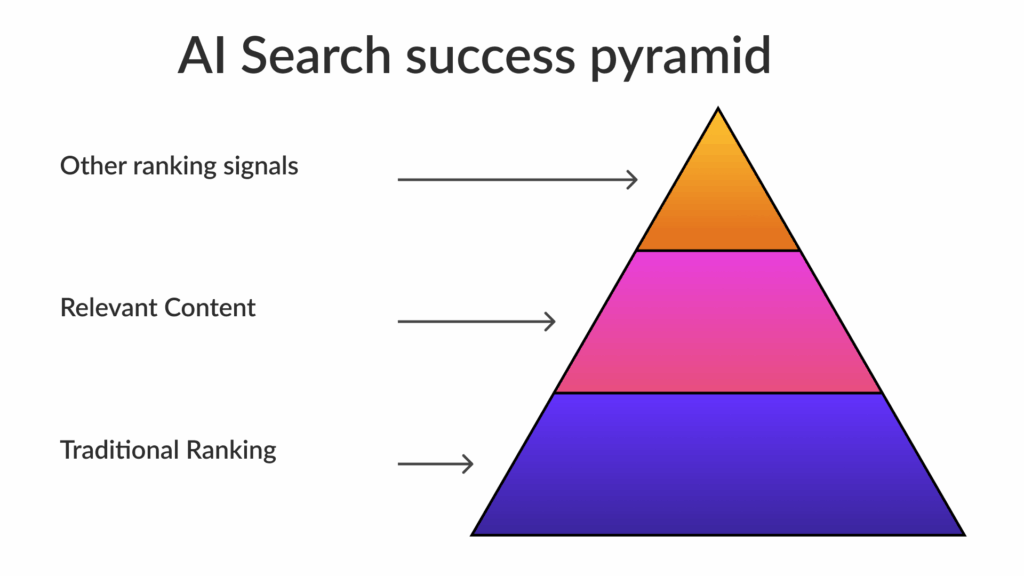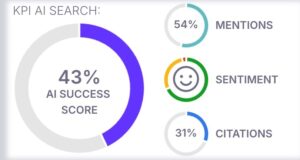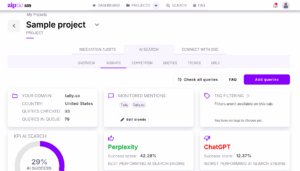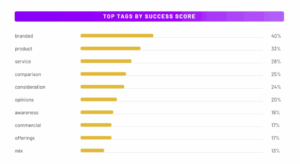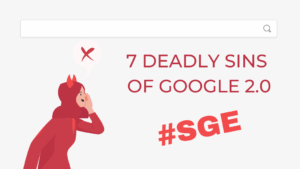I’m one of the co-founders of ZipTie, an AI search tracking platform. Rather than write another generic sales pitch, I want to share the criteria I’d use to evaluate ANY AI search tracking tool – including our own competitors. These are the hard-learned lessons from building in this space.
Here’s my honest framework for evaluating these tools – use it to assess ZipTie, our competitors, or any new entrant in the space.
The Fundamentals That Actually Matter
1. Do They Understand the Dual Nature of AI Search Success?
Traditional SEO was “simple”: rank high for keywords, get traffic. AI search is different – it combines website authority with brand power. Your tracking tool needs to measure both citations (when your website influences AI search results) and mentions (when your brand is “recommended” to the users by AI).
Most tools focus heavily on one or the other. The best ones treat them as equally important metrics that work together.
How ZipTie handles this: We track both mentions and citations as core metrics, recognizing that AI search success requires both strong brand presence and authoritative content. On top of that, we also track brand sentiment to let you understand how positively AI search talks about your business.
2. Are They Focused on Platforms That Actually Drive Business?
I’ve seen tools that track 15+ different AI platforms. Impressive? Maybe. Useful? Probably not.
The reality is that three platforms drive the majority of meaningful AI search traffic:
- Google AI Overviews (it’s a part of the biggest search engine)
- ChatGPT Search (still not the number 1, but growing massively)
- Perplexity
Yes, other platforms exist, but spreading your optimization efforts across obscure LLMs is usually a waste of time.
Look for tools that help you focus rather than chase every shiny new AI model.
ZipTie focuses on the most important AI search platforms: Google’s AI Overviews, ChatGPT and Perplexity.
3. Can They Generate Queries You’d Never Think Of?
Here’s something most people don’t realize: AI search queries are fundamentally different from traditional SEO keywords. They’re longer, more conversational, and incredibly hard to predict manually.
I spent months trying to manually generate query lists for our clients. It was painful and incomplete. The breakthrough came when we built automated business query generation at ziptie.dev/ – suddenly we were discovering relevant searches our customers never would have found on their own.
A good AI search monitoring tool should give you many options – you can check your own selection of queries, or you can use their query generator.
4. Do They Give You Multiple Levels of Detail?
When it comes to analyzing your success in AI search engines you need executive-focused reporting and the granular data for actually optimizing content. Tools that only provide high-level summaries leave you guessing about what to fix. Tools that only show granular data overwhelm you with information.
Additionally, the tool not only allows these higher levels of analysis, but also allows users to dig deeper and look at particular products, services, or website sections.
The sweet spot is having project-level overviews, topic-level groupings, and individual query performance – all in one platform. ZipTie allows you to do this – you can set separate projects and organize queries by tags.
The Red Flags That Reveal Amateur Tools
Marketing Features vs. Functional Features
I cringe when I see tools promoting “LLMs.txt file generation” as a major feature. There’s zero evidence this impacts AI search results, but it sounds technical enough to impress clients.
Similarly, many tools show “approximate AI search volume.” In my experience, this data often isn’t actionable and can sometimes lead you in the wrong direction when making optimization decisions.
I understand why these features get built – they look impressive in demos and help differentiate tools in a crowded market. But from a practical standpoint, they don’t typically address the core problems businesses face when optimizing for AI search.
The Accuracy Problem
Most founders building AI search tools haven’t grappled with how hard accurate tracking actually is. To properly track AI search, they need to avoid personalization, track in proper geolocation, and avoid shadowbans (i.e. it’s quite common that AI Overviews shows the AI answer to real users but not to bots which makes delivering accurate results quite challenging.
When evaluating tools, ask specific questions about their data collection methodology. Vague answers usually indicate shortcuts that compromise accuracy.
Export Limitations
The AI search space moves fast, and today’s perfect dashboard becomes tomorrow’s limiting interface. Any tool that doesn’t offer robust CSV export or API access is betting their current interface will meet all your future needs forever.
While ziptie.dev/ doesn’t yet allow for API calls, ziptie.dev/ offers robust CSV export and we understand the importance of eventually allowing for API calls.
The key is ensuring you’re never completely locked into one way of analyzing your data.
Advanced Features That Separate Leaders from Followers
Actionable Scoring Systems
Raw data is overwhelming. What you need is a clear score that tells you: “You’re succeeding here, failing there, and here’s what to prioritize.”
At ziptie.dev/ we built our AI Success Score around three factors: mention frequency, sentiment, and citation strength.
Competitor Intelligence That Reveals New Threats
Traditional SEO competitors are obvious – they’re ranking above you in Google. AI search competitors are hidden. They might have terrible traditional SEO but dominate AI responses through strong brand presence or strategic content positioning.
The tool of your choice should reveal these emerging competitors before they become obvious threats.
Source Authority Mapping
Knowing that Reddit influences 40% of AI responses in your niche is actionable intelligence. Knowing that “social media” influences responses is useless generalization.
Look for tools that get specific about which exact domains and content types drive AI responses in your industry.
ziptie.dev/ can give you this information in a simple, easy to read and convenient table that is updated on the go.
This is perfect to help you prioritize outreach efforts. Additionally, you can easily see which pages of your competitors are most successful in AI search – this way you can “copy” their strategy to increase your success in AI search.
The Specialization Question
Should you choose a specialized AI search tool or an established SEO platform adding AI features?
Having competed against both, I believe specialization wins in fast-moving markets. Traditional SEO tools have existing architectures, customer expectations, and product roadmaps that make pivoting to AI search challenging. They’re building AI features as add-ons to their core business.
Specialized AI search tools are building their entire product around this new paradigm. They can move faster, make more radical interface decisions, and focus completely on solving AI search problems.
But specialization only matters if the specialist is established enough to survive and iterate. A six-month-old tool built by a solo developer might be specialized, but obviously, it’s also risky.
Ziptie was long a technical SEO tool, but 2 years ago we made a strategic decision to go 100% AI. This made us the first tool to offer AI Overviews tracking, which is a part of the biggest AI search engine.
My Honest Assessment Framework
When evaluating any AI search tool (including ours), ask:
- Do they track both mentions and citations? If not, they don’t understand AI search fundamentals.
- Can they generate relevant queries automatically? It’s crucial to have such a feature.
- How accurate is their data? Ask for specifics about their data collection methods.
- Can you export everything? If not, you’re locked into their interface forever.
- Do they focus on the top 3 platforms or chase every new LLM? Focus beats coverage.
- Do they provide optimization guidance or just monitoring? Tracking without actionability is expensive dashboarding.
I’ll be transparent – ZipTie aligns well with these criteria, but every business has different needs and priorities. Use this framework as a starting point to build your own evaluation checklist based on what matters most for your specific situation.
